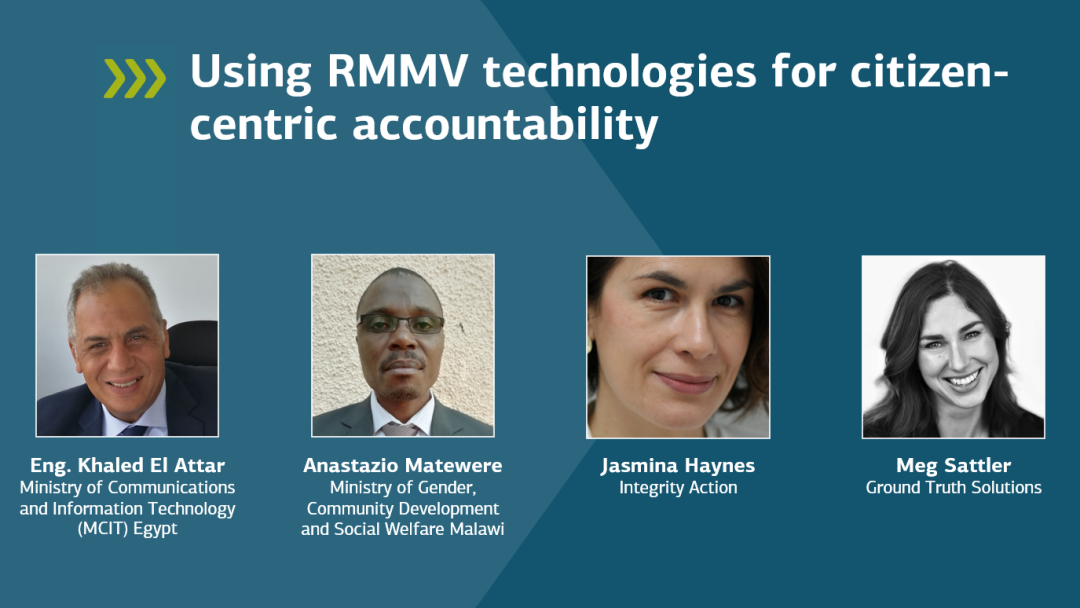Citizens have various ways of raising their concerns with public authorities and making their voices heard, be it via hotline, mobile phone app or other channels. Development cooperation also uses this feedback. Various approaches were presented at the Remote Management, Monitoring & Verification (RMMV) conference organised by KfW and the German Federal Ministry of Economic Cooperation and Development (BMZ) in early February 2023.

"We need more drinking water", "The latrines need to be emptied more often", "My house has no electricity" - more than 400 messages from the population were received via the app "Talk to Loop" after a volcanic eruption in Indonesia. This made it easier for the non-governmental organisation (NGO) Habitat for Humanity to support people who had to leave their homes because of the natural disaster. The feedback gathered in this way even led to a change in the government's resettlement policy.
"Comprehensive and immediate feedback" is the advantage of citizen-driven RMMV solutions, Jasmina Haynes, executive director of the NGO Integrity Action, points out. She also uses an app to get feedback, such as how far a school construction has been implemented or how patients are being treated in a health centre.
"Digital transformation is not a technological process, but a social change of mindset," emphasises Khaled El Attar, Vice Minister of Automation, Digital Transformation and Administrative Development in Egypt. If implemented correctly, digitalisation can lead to more justice and inclusion. The government has to change its mindset and be more responsive to the citizens’ needs, El Attar says. Egypt already offers many digital services to its citizens. Access is available to all via the web as well as through post offices or by telephone.
The importance of the population's trust in the government is the key to making digital solutions successful, emphasises Anastazio Matewere, Chief Social Welfare Officer, at the Ministry of Gender, Community Development and Social Welfare in Malawi. KfW finances German contributions to the Malawian social cash transfer system for the poorest of the population, including a grievance mechanism for the recipients.
Citizens are also increasingly involved in the implementation of development cooperation projects. For instance, they collect part of the 200 terabytes of data that Biometrio.earth GmbH collects in Mexico per year in order to monitor endangered ecosystems. On site, people enter evidence of wildlife activity or plant populations into an app and receive compensation for their efforts. In addition, images from satellites, drones and wildlife cameras are being analysed. Furthermore, sound recordings prove the presence of bird and bat species. But gunshots, the noise of chain saws or bulldozers are also recorded and serve as alarm signals for illegal deforestation. Software brings all the data together and evaluates the state of the ecosystem.
It is obvious that the use of data collected by citizens now extends to all areas of development cooperation, from emergency aid to monitoring and evaluation.